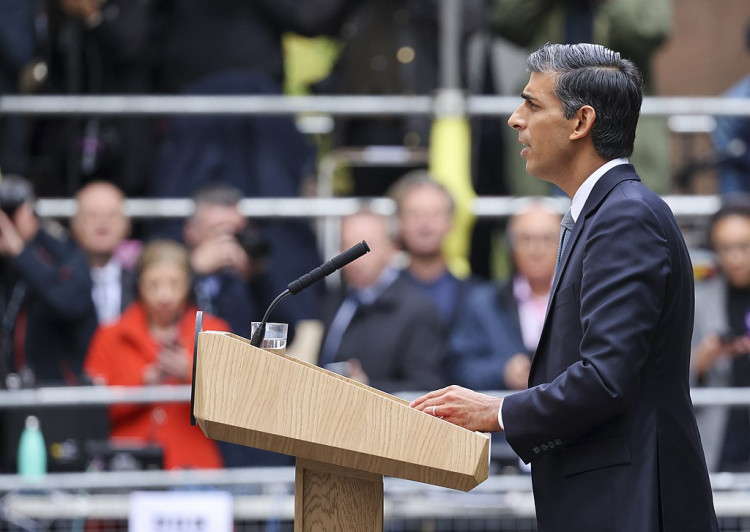Last weekend, senior officials from the UK government visited India to discuss the India-UK Free Trade Agreement. While the UK's Department for Business and Trade and India's Trade Ministry have not officially commented on the matter, an official familiar with the negotiations told The Guardian last week that talks are ongoing, with both sides eager to conclude negotiations before their respective national elections.
Indian Prime Minister Narendra Modi hopes to conclude negotiations before the end of February next year, ahead of launching a nationwide election campaign. For UK Prime Minister Rishi Sunak, securing the India-UK Free Trade Agreement would be a significant achievement for his government. The UK must hold its national election by January 2025, with media speculation suggesting it could take place in the fall of 2024.
Sunak Seeks to Validate Brexit Benefits To demonstrate the benefits of Brexit, successive UK governments have sought to establish trade agreements with more countries, with a successful deal with India being a key promise regarding Brexit. For Sunak's government, which has emphasized the UK's post-Brexit stability, the agreement could provide a satisfactory response to voters.
India, with its population of 1.4 billion, offers significant growth potential. If the UK successfully concludes a free trade agreement with India, it would become the first European country to do so. The agreement could boost the UK's GDP by 0.05% by 2035, just from tariff reductions.
However, the agreement was temporarily shelved after exceeding the final deadline due to disagreements on details. Former UK Prime Minister Boris Johnson had promised to sign the agreement with India by Diwali (November 12) in 2022, but the two sides failed to agree on core aspects, such as visas and specific tariff details.
After taking office in October last year, Sunak focused on negotiations with the EU. For Sunak's government, the priority is to complete the details of the agreement thoroughly and efficiently. However, allies of Sunak's predecessor, Liz Truss, have criticized him for a lack of leadership on this issue.
Rumors suggest that Sunak's father-in-law, Narayana Murthy, founder of Indian IT giant Infosys, is at odds with Modi's government. In a 2019 speech, Murthy stated that no country could achieve economic development without freedom of faith and freedom from fear. Although he did not name any political party, many interpreted this as criticism of Modi's Bharatiya Janata Party.
The India-UK Free Trade Agreement negotiations, which began in January last year, have undergone 13 rounds of talks. The UK government's main demands include tariff reductions and stronger protection for products under the UK's Geographical Indications program, such as Scotch whisky, Stilton cheese, and Cheddar cheese.

Modi called the storming of New Delhi’s historic Red Fort an “insult” to the country’s values.
India's Push to Become "World's Third" Recent victories for Modi's Bharatiya Janata Party in populous and politically influential states like Madhya Pradesh, Rajasthan, and Chhattisgarh have given Modi a significant advantage in next year's national elections. According to a survey by American consulting firm Morning Consult, 78% of Indian respondents approve of Modi's performance.
In August, Modi promised Indian voters rapid economic development over the next five years, aiming to make India the world's third-largest economy after China and the US.
The successful conclusion of the India-UK Free Trade Agreement would be a significant step towards achieving this goal. A Pew Research Center survey in August showed that about seven in ten Indians believe India's global influence has grown in recent years, with 77% of ruling party supporters and 60% of non-supporters agreeing with this view. Thus, proving India's growing global influence could garner more votes for Modi's government.
The India-UK Free Trade Agreement covers 26 chapters, including goods, services, investment, and intellectual property. In addition to seeking zero-tariff market access for various goods, the Modi government is seeking more visa opportunities for Indian professionals in IT, healthcare, and other fields.
With Sunak's government tightening immigration policies, the two governments might agree to provide time-limited business visas for highly skilled workers. In 2022, the UK issued 1.4 million visas, a third of which went to Indian workers. On December 4, UK Home Secretary James Cleverly announced plans to reduce net immigration by 300,000 through measures like raising visa thresholds and restricting family members.
Former UK Home Secretary Suella Braverman claimed that Indian immigrants have the highest proportion of visa overstays, a statement strongly condemned by the Indian government. As the UK's largest immigrant group, the proportion of Indian overstayers is less than their overall proportion of immigrants. However, Indian workers' visas will inevitably be affected by tighter immigration policies.
UK officials told The Guardian they are willing to negotiate improved details for intra-company transfers. Discussions are ongoing about how long employees transferred within multinational companies can stay in the UK and whether they can bring family members.




